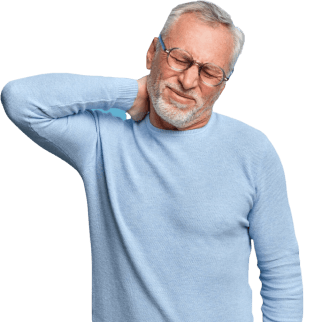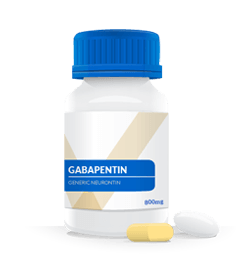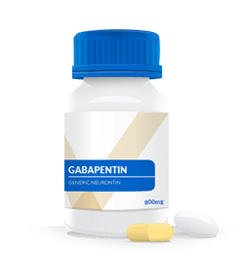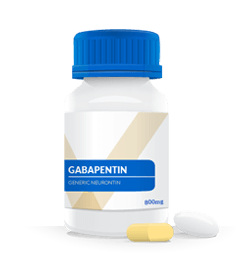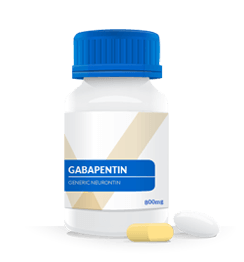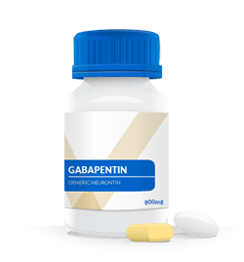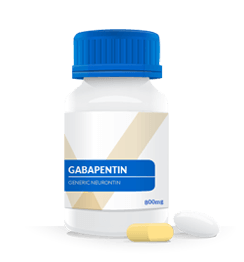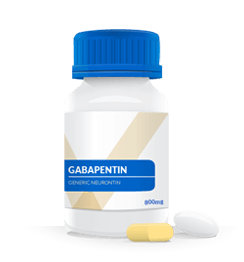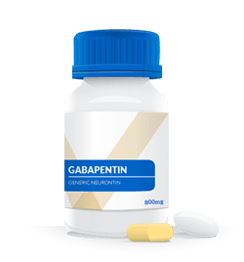What are the Uses of Gabapentin?
Gabapentin was introduced in 1993 as a muscle relaxer and anti-spasmodic medication. As time went by, its potential to stop and control partial seizures was discovered. However, constant research has explored multiple uses of gabapentin.
Apart from seizures, you can use Gabapentin to treat neural pain and movement disorders like restless legs syndrome. Besides these on-label uses, Gabapentin is used off-label. Off-label uses of this medication include: treating alcohol disorder, managing anxiety, and sometimes treating bipolar mood disorder.
Gabapentin for Epilepsy and Seizures
Gabapentin’s most common use is in the treatment of epilepsy and seizures. Let’s understand how it helps during a seizure. When you have a seizure, your brain cells are forced to work much more rapidly than normal. This leads to fast neuronal firing. Gabapentin works by producing the effects of the inhibitory neurotransmitter GABA. Gabeptin slows the neuron firing and makes you calm and relaxed. In a way, the seizures stop before they can start.
Gabapentin for Neuralgia
Gabapentin is a reliable medication for the treatment of nerve pain, also known as neuralgia. Neuralgia happens when your nerve gets damaged or irritated. In this condition, you experience a sharp, burning pain in your body. This condition is caused by shingles infection or diabetes.
When you start taking Gabapentin for one or two weeks, you can see that your pain in Gabapentin works as an effective analgesic. Gabapentin blocks the way pain is transmitted through your body. As a result, it changes the way the body feels aching sensation.
Restless Legs Syndrome (RLS)
Restless Legs Syndrome is a neurological disorder characterized by an irresistible urge to move the legs, often accompanied by uncomfortable sensations. Gabapentin has shown promise in alleviating the symptoms of RLS. While the exact mechanism of its action in RLS is not fully understood, it is believed to involve modulation of calcium channels and neurotransmitter release, ultimately providing relief from the distressing sensations associated with this disorder.
Off-Label Uses of Gabapentin
While the aforementioned uses represent gabapentin's approved indications, it is worth noting that the medication is sometimes prescribed off-label for conditions not officially endorsed by regulatory agencies. Off-label use of gabapentin has been reported in the management of anxiety disorders, migraines, and bipolar disorder. However, the evidence supporting these off-label uses is less robust, and caution is advised when prescribing gabapentin for indications not supported by rigorous clinical trials.
For Alcohol Use Disorder
About 14% of US adults suffer from AUD, which is a major health burden and frequently has serious social and clinical ramifications. It shows up as excessive drinking and losing control despite negative effects on many aspects of life. Cravings, tolerance, and withdrawal symptoms after stopping are typically linked to it. In addition to tremors, anxiety, sweating, nausea, and tachycardia, severe alcohol withdrawal symptoms can also include hallucinations, seizures, and delirium tremens. Alcohol withdrawal can be lethal if left untreated. Here is how Gabapentin helps in managing alcohol withdrawal symptoms
- Assists in controlling the impulse to drink, especially in the early phase
- Reduce alcohol cravings
- Improve insomnia
- Lower anxiety
- Works as mood-booster
For Managing Anxiety
Gabapentin, originally developed as an anticonvulsant, has emerged as a valuable adjunct in managing anxiety disorders. Despite not being FDA-approved for this purpose, its efficacy has been observed in various studies. By modulating neurotransmitter release and dampening excitatory signals, Gabapentin exerts a calming effect on the nervous system. Its role in anxiety management is particularly prominent in patients who do not respond adequately to traditional anxiolytics. The drug's tolerability and relatively low risk of abuse make it an appealing option. However, caution is necessary due to limited conclusive evidence and potential side effects. Further research is essential to solidify its position in the anxiety disorder treatment landscape.
Form and Dosage of Gabapentin
On Shopemed, Gabapentin is available in the following dosage strengths and forms. Here you can buy Gabapentin oral tablets.
- It comes in a file of 90 tablets of 300mg and 400mg
- It comes in a file of 120 tablets of 300mg and 400mg
Can I develop a dependency on Gabapentin?
Although gabapentin is used by many for valid medical reasons, some people develop drug addictions and may abuse the medication. Physical dependence on gabapentin may result from repeated use of the medication. This happens when the substance becomes ingrained in the body and is necessary for normal bodily functions. Physical dependence is a typical physical reaction to long-term drug use. You will go through withdrawal symptoms if you become physically dependent on gabapentin and reduce or stop using it.
There are several strategies to treat withdrawal symptoms, such as gradually reducing the drug's dosage or using other medications to relieve the symptoms. When someone quits "cold turkey," or all at once, their withdrawal symptoms may get much worse.
How Should I Take Gabapentin?
Gabapentin tablets are to be taken orally which means you need to take this medication by mouth with a glass of water. Avoid crushing, breaking, or dry-chewing the tablet, unless your doctor has specifically prescribed it to do so. If you are directed to take Gabapentin in half, preserve the unused portion properly. If it gets older than 28 days, do not consume the tablet. Avoid taking Gabapentin with any addictive substances like narcotics or alcohol. You should not take Gabapentin if you have a history of mental disorders. It is best if you don’t operate heavy machinery after taking Gabapentin, as the drug might make you sleepy. Always stay in contact with your healthcare provider, if you feel your condition is getting worse. Keep updating your doctor about your progress and problems when you have started taking Gabapentin.
Side Effects and Considerations Regarding Gabapentin?
Like any medication, gabapentin is not without side effects. Common side effects include dizziness, drowsiness, and coordination problems. Healthcare providers must weigh the potential benefits against the risks when considering gabapentin for a particular patient. Additionally, gradual titration of the dosage and close monitoring for adverse effects are essential to minimize the risk of side effects.
Allergic Reactions: Get in touch with your doctor if you experience
- a skin rash,
- hives, itching,
- swelling,
- blistering, or peeling skin, with or without a fever.
Additionally, you should get in touch with your doctor if you experience
- difficulty breathing,
- swallowing,
- wheezing, or
- swelling in your lips, throat, eyes, mouth, or tongue.
Alterations in behavior or mood: Any suicidal thoughts or thoughts about dying, thoughts of suicide, anxiety, irritability, depression, or feelings of agitation or restlessness should be reported to your provider. In addition, you should contact your doctor if you experience difficulty falling asleep, panic attacks, feelings of hostility or rage, impulsive behavior, or an abrupt increase in activity.
Conclusion
Gabapentin's journey from an antiepileptic drug to a versatile medication with diverse on-label uses underscores its significance in modern medicine. Its ability to address epilepsy, neuropathic pain, and restless legs syndrome highlights its therapeutic versatility. However, the off-label uses of gabapentin warrant careful consideration, emphasizing the need for evidence-based practice in prescribing this medication. As our understanding of the nervous system and gabapentin's mechanisms of action continues to evolve, the potential applications of this medication may expand, offering new avenues for improving the quality of life for individuals with various neurological and pain-related conditions.
